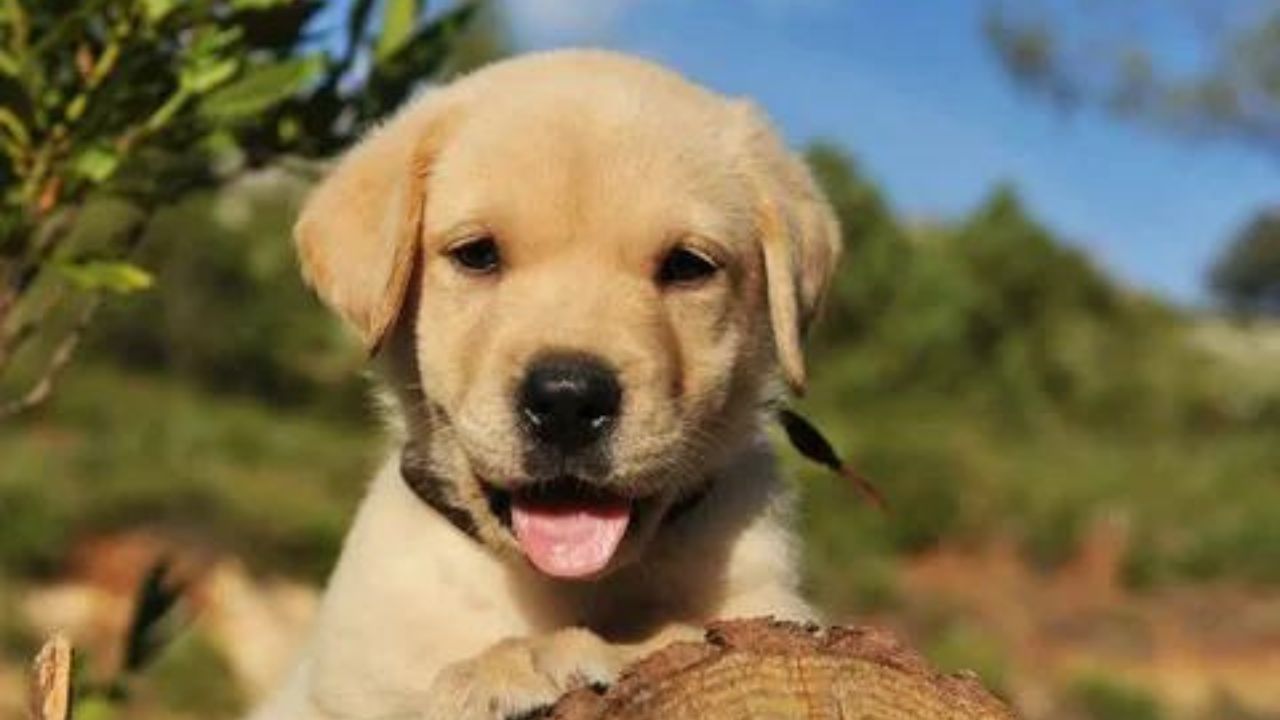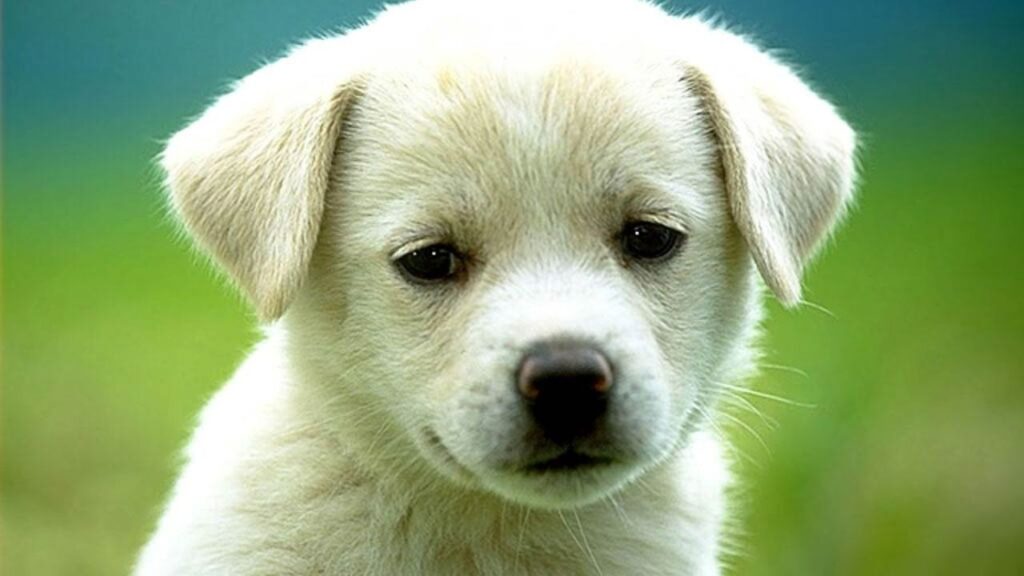
It’s an exciting event to bring home a new puppy; there will be lots of fun, snuggles, and yes, nibbles and nips. Despite the initial cuteness of those tiny, sharp teeth, having a biting puppy may be uncomfortable and draining. The question, “When will my furry friend calm down and stop biting?” is understandable for parents of puppies. Gaining knowledge of the growth phases and habits of pups can help answer this issue.
In this comprehensive guide, we’ll explore the journey from playful puppyhood to well-mannered adulthood, shedding light on when puppies typically calm down and cease their biting tendencies.
The Teething Phase
Teething is one of the main causes of puppy biting. Puppies feel pain and itching as their baby teeth fall out and their adult teeth erupt, much like human newborns do. Usually starting around three to four months, this procedure might continue until the infant reaches the age of six months. Puppies’ natural tendency during this period is to chew on everything they can find to ease their aching gums.
Redirecting their focus from inappropriate objects and offering appropriate chew toys are two ways to manage biting during the teething phase. To help satiate your puppy’s chewing appetite while keeping your furniture and possessions safe, consider investing in sturdy chew toys made especially for teething dogs.
Socialization and Bite Inhibition
Learning to bite inhibition and socialize is another important part of a puppy’s growth. Puppy socialization is introducing them in a healthy and regulated way to a variety of people, animals, settings, and experiences. They gain self-assurance and learn how to behave politely around people thanks to this.
The capacity of a puppy to regulate the power of their bite is known as bite inhibition. Puppies use their jaws to naturally explore their surroundings, but they must understand that biting too hard can hurt. Here’s when socialization with older canines and littermates comes in quite handy. Playing tough with their siblings teaches pups to learn when to stop biting so they don’t hurt them. Puppies may miss this important lesson if they are taken from their littermates too soon, thus puppy parents must continue to teach biting inhibition with gentle punishment and encouraging behavior.
Training and Consistency
To teach puppies acceptable behavior and reduce their propensity to bite, consistent training is essential. Teaching your puppy basic obedience instructions like “sit,” “stay,” and “leave it” helps to set clear expectations and boundaries. Techniques for positive reinforcement, such as giving sweets and praise for excellent conduct, may be quite successful in forming desirable habits.
Avoiding severe punishment is crucial when dealing with biting behavior since it can cause fear and hostility. Rather, concentrate on diverting your puppy’s attention to a suitable chew toy if they try to bite if their mouthing gets too harsh. Teaching your puppy instructions like “gentle” or “no bite” can also assist convey your expectations to them in a language they can comprehend. When do puppies calm down and stop biting?
Patience and Persistence
It is crucial to keep in mind that each puppy is different and that their development will differ depending on breed, temperament, and surroundings. Some puppies could grow out of their biting period fast, while others might take longer to pick up good manners. For puppy parents to successfully navigate this formative stage, tenacity and patience are essential qualities.
Puppies usually stop biting as they reach adulthood and their adult teeth completely erupt. Many pups have considerably lessened their mouthing inclinations by the time they are 6 to 9 months old, however, nipping may still happen sometimes during play or times of excitement.
Professional Guidance
Seeking advice from a qualified dog trainer or behaviorist might be helpful if you’re finding it difficult to control your puppy’s biting behavior even after diligent training sessions. These professionals can evaluate your puppy’s behavior, give tailored guidance, and suggest extra training methods to handle certain problems.
How To Calm a Puppy Down

Although it may take some time for your puppy to get completely calm, there are methods to make him exhausted.
According to Dr. Coppola, giving a puppy opportunities for both mental and physical activity is the greatest approach to help them calm down. Exercise, puzzle toys, and chances to partake in typical canine activities (such as digging, foraging, smelling, and socializing) are all included in this. It is true what they say: “A tired dog is a happy dog.” When do puppies calm down and stop biting?
Play with him
A fun technique to guarantee your puppy is exhausted at the end of the day is to play with him every day. Toys that your dog can play with alone while you’re at work are also available. Puzzle toys such as this one educate your puppy’s problem-solving abilities and will keep them busy and interested while you’re at work.
Walk him
Daily walks are an excellent method to strengthen your relationship with your puppy expose him to new situations and exercise to keep him healthy. It will also help release some of his stored energy.
Routine
Establish a regular schedule for your puppy so he may learn when to play and when to unwind (such as before bed). He’ll be more at ease with a timetable since he’ll know what to anticipate.
Why Do Puppies Bite So Much
Puppies can bite for all kinds of reasons, including:
Play
Puppy play can naturally involve mouthing, just like it might involve snarling and wrestling. A puppy will usually squeal to alert its littermates when another dog bites them too forcefully.
Teething
Teeth erupt in puppies between the ages of 4 and 6 months. They may then start nibbling at objects throughout the home, even you, since they may become much more feisty.
Hunting behavior
Puppies may bite out of pure hunting impulses on occasion. When a puppy lacks siblings to exercise their hunting skills with, they may occasionally focus their attention on the occupants in the house.
Exploration
Your dog uses their lips and teeth to learn more about their environment because they lack opposable thumbs. According to Smith, for example, dogs may use their lips to determine if their prey is alive or dead. Your favorite socks may be subject to the same concept!
Breed
It’s also possible that some dog breeds are inherently more mouthy than others. Although Dr. Waite and her colleagues were unable to ascertain data that contrasted breeds, their research revealed that Poodles and Doodle mixes had greater reports of mouthing than several other prevalent breeds. When do puppies calm down and stop biting?
Conclusion
Taking care of a puppy’s biting tendencies is one of the many difficulties that come with having a happy and fulfilling dog in the house. Your pet may be helped to mature into a well-mannered adult dog by using appropriate training and socialization methods, as well as an understanding of the developmental phases pups go through.
A harmonious connection between you and your canine partner may be achieved via regular training, patience, and positive reinforcement. However, there is no one-size-fits-all solution to the topic of when pups quit biting. You can soon find yourself enjoying the companionship of an adult dog that is kind and well-behaved with a little patience, commitment, and love.
FAQ
At what age do puppies usually calm down and stop biting?
Puppies usually cease biting when they reach puberty, which occurs between the ages of 6 and 12 months. The precise time frame, however, might change based on the breed, the temperament of each person, and the constancy of the training.
Why do puppies bite?
Biting is a normal behavior displayed by puppies as a result of social contact, teething, and curiosity. Puppies acquire bite inhibition during play and use their lips to investigate the world around them.
How can I train my puppy to stop biting?
The secret to teaching pups to quit biting is consistent training and good reinforcement. Provide suitable chew toys, divert their focus if they attempt to bite, and give them praise for gentle play. A puppy should never be punished for biting; this might incite fear or hostility. Instead, avoid rough play that promotes biting.
What are some signs that my puppy is calming down?
Your puppy may be showing signs of calmer times ahead, such as less biting and mouthing, better impulse control, and longer attention spans during training. They could also have less tendency toward hyperactive conduct and more laid-back body language.
What if my puppy continues to bite aggressively despite training efforts?
It’s imperative to get expert assistance from a licensed dog trainer or behaviorist if your puppy bites consistently and aggressively. Puppies that exhibit aggression should be helped right away to avoid it developing into a bigger problem as they become older.







Your point of view caught my eye and was very interesting. Thanks. I have a question for you.